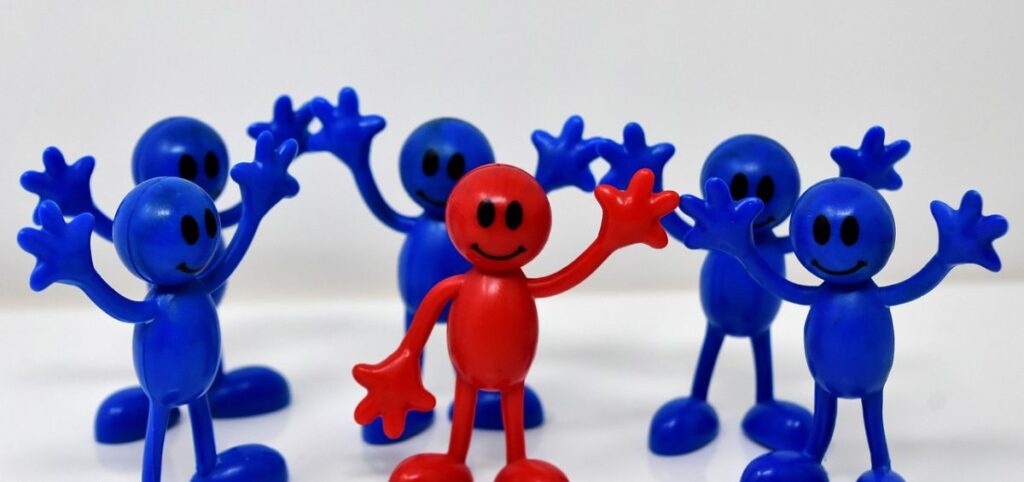10 Quick and Dirty Ways Organizations can be Neurodivergent Inclusive: A Wellness Program
How to be Neurodivergent Inclusive We live in a world where labels such as “neurotypical” and “ADHD” are now commonplace. But for all the talk about diversity, we often forget our most marginalized communities – those with neurodivergent conditions such as ADHD, Autism, or Dyslexia; we are really bad at being Neurodivergent Inclusive. The truth is that individuals with these diagnoses face unique challenges when it comes to succeeding in their careers. They can quickly become isolated and unsuccessful without the right tools and support. But it doesn’t have to be this way! Employers can create a neurodivergent inclusive environment by providing wellness programs tailored specifically to those with neurodivergent conditions. This would offer them the opportunity to thrive in their roles and positively contribute to the workplace. Imagine if employers provided targeted benefits to employees who needed additional assistance due to their conditions. Instead of feeling left out or disconnected from their colleagues, they could work together on projects and get the same recognition for their efforts. It is a neurodivergent inclusive environment where everyone wins! Employers need to understand that investing in these types of initiatives is not only beneficial for those with neurodivergent conditions but also beneficial for the company itself in terms of improved employee morale and productivity. Companies should strive to build a neurodivergent inclusive environment where everyone feels respected, appreciated, and accepted, regardless of their differences. How you may ask, can my company implement wellness for all, including its neurodivergent employees? Here are 10 ways organizations can be made more neurodivergent inclusive: 1. Provide training: One of the most important things an organization can do to become more inclusive to the neurodivergent is to train all employees. This training should cover neurodiversity and provide information about how people’s brains may work differently. 2. Create a supportive culture: Organizations can create a more inclusive environment by fostering a supportive culture. This can include things like recognizing and valuing differences, encouraging open communication and promoting flexibility in how work is done. 3. Offer accommodations: Providing accommodations to support the specific needs of neurodivergent employees is critical. This includes flexible schedules, quiet workspaces, or assistive technology. 4. Create clear expectations: Many neurodivergent individuals thrive in environments where expectations are clear and well-defined. Organizations can create more inclusive environments by providing clear instructions and expectations for tasks and projects. 5. Foster a sense of community: Creating a sense of community within the organization can benefit neurodivergent individuals. This can include things like hosting regular social events, creating support groups, or providing opportunities for employees to connect with one another. 6. Use inclusive language: Organizations can create more inclusive environments by using inclusive language in all communications. This includes avoiding ablest language and ensuring that all employees feel valued and respected. 7. Provide mentorship: Offering mentorship opportunities can be helpful for neurodivergent individuals, especially those who are just starting out in their careers. Mentors can offer support, guidance, and encouragement as they navigate the workplace. 8. Practice empathy: Practicing empathy is critical for creating a more inclusive workplace. This means actively listening to employees, understanding their needs and experiences, and taking steps to support them. 9. Be flexible: Organizations can be more inclusive to neurodivergent employees by being flexible in how work is done. This may include providing opportunities to work from home, adjusting schedules, or allowing for breaks when needed. 10. Advocate for inclusion: Finally, organizations can become more inclusive to neurodivergent employees by advocating for inclusion both within the workplace and in the broader community. This can include participating in diversity and inclusion initiatives, partnering with organizations that support neurodivergent individuals, and speaking out against discrimination and prejudice. Many of these essential steps are counter-intuitive and require a transformation of Mindset, Behaviors, and accountability! Well, that is Dr. Get in Focus’s area of expertise, so It’s time to take action! Get in touch with me! Employers should implement wellness programs specifically designed for employees with neurodivergent conditions so that they can flourish in the workplace just like any other employee. As a Neurovergent myself, I can appreciate organizations that are neurodivergent inclusive; I’ve learned alternative ways to get things done and am fired up when bosses allow me to get things done the way I get things done. Now, if you’re an adult, college student, or entrepreneur reading this article and you’ve been diagnosed with ADHD symptoms of anxiety and want to improve your time management skills, discover the art of focusing, and increase your productivity. Register here to join me as I teach a unique XYX process that will move you from A-Z at my Get In Focus and Skyrocket Productivity Workshop. This is a virtual event on Zoom; seating is limited, so you are going to want to register sooner rather than later. Looking forward to seeing you there. There will also be the option to receive personal coaching from me during the breaks. To register today, just click on the link: https://getinfocusworkshop.plusultrava.com/










